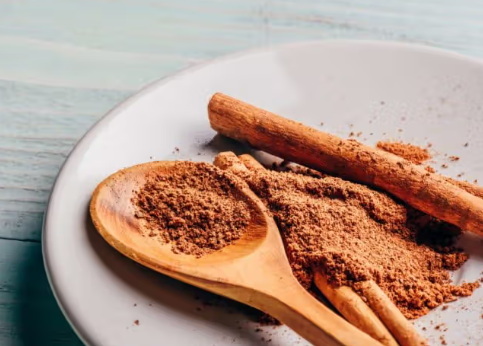Content Menu
● Introduction to Cinnamon Bark Extract
>> Cinnamon Bark Extraction Process
● Health Benefits of Cinnamon Bark Extract
>> 1. Antioxidant Properties
>> 2. Anti-Inflammatory Effects
>> 3. Antimicrobial Activity
>> 4. Blood Sugar Regulation
>> 5. Cardiovascular Health
>> 6. Neuroprotective Effects
>> 7. Digestive Health
>> 8. Cancer Prevention
>> 9. Skin and Hair Benefits
>> 10. Immune System Support
● Incorporating Cinnamon into Your Diet
● Conclusion
● FAQ
>> 1. What are the potential side effects of consuming cinnamon bark extract?
>> 2. How much cinnamon bark extract should I consume daily?
>> 3. Can cinnamon bark extract help with weight loss?
>> 4. Is Ceylon cinnamon safer than Cassia cinnamon?
>> 5. Can cinnamon bark extract be used as a natural preservative?
● Citations:
Cinnamon bark extract, derived from the inner bark of the Cinnamomum tree, has been a staple in traditional medicine and culinary practices for centuries. Its rich aroma and flavor have made it a favorite in many cuisines, but beyond its culinary uses, cinnamon bark extract offers a multitude of health benefits. This article delves into the top health advantages of incorporating cinnamon bark extract into your daily routine, exploring its antioxidant, anti-inflammatory, antimicrobial, and metabolic effects.

Introduction to Cinnamon Bark Extract
Cinnamon is obtained from the inner bark of the Cinnamomum tree, which is peeled and dried to form the familiar cinnamon sticks or ground into a fine powder. The two main types of cinnamon are Ceylon cinnamon (Cinnamomum verum) and Cassia cinnamon (Cinnamomum aromaticum), with Ceylon being considered of higher quality and safer for consumption due to lower levels of coumarin, a compound that can be toxic in large doses.
Cinnamon Bark Extraction Process
The extraction process typically involves grinding the cinnamon bark and then using solvents like ethanol or water to extract the bioactive compounds. The choice of solvent can affect the types and concentrations of compounds extracted, with ethanol often yielding more potent extracts. The quality of the extract can also depend on factors such as the source of the cinnamon bark, the age of the tree, and the processing conditions.
Health Benefits of Cinnamon Bark Extract
1. Antioxidant Properties
Cinnamon bark extract is rich in antioxidants, including polyphenols like cinnamic acid and kaempferol, which help protect the body from oxidative stress. Oxidative stress is linked to various diseases, including cancer, Alzheimer's, and cardiovascular diseases. Antioxidants in cinnamon can neutralize free radicals, thereby reducing the risk of these conditions.
2. Anti-Inflammatory Effects
The anti-inflammatory properties of cinnamon are attributed to its ability to modulate inflammatory pathways. Compounds like cinnamaldehyde have been shown to reduce inflammation, which is beneficial in managing chronic conditions such as arthritis and heart disease. This anti-inflammatory action can also help alleviate symptoms of respiratory conditions like asthma.
3. Antimicrobial Activity
Cinnamon bark extract exhibits antimicrobial properties, effective against a range of bacteria, fungi, and viruses. This makes it useful in preventing infections and supporting dental hygiene. Cinnamaldehyde is particularly noted for its ability to inhibit the growth of pathogens like E. coli and Staphylococcus aureus. Its antimicrobial properties also make it a natural preservative in food preparation.
4. Blood Sugar Regulation
Cinnamon has been traditionally used to manage blood sugar levels. It enhances insulin sensitivity, helping the body to more effectively regulate glucose uptake and metabolism. This can be particularly beneficial for individuals with type 2 diabetes or those at risk of developing insulin resistance. Studies have shown that cinnamon can lower fasting blood sugar levels and improve glycemic control.
5. Cardiovascular Health
Regular consumption of cinnamon bark extract may help lower cholesterol levels and blood pressure, both of which are risk factors for heart disease. The antioxidants and anti-inflammatory compounds in cinnamon contribute to these cardiovascular benefits by reducing inflammation in the blood vessels and improving lipid profiles.
6. Neuroprotective Effects
Cinnamon contains compounds that may help prevent or slow the progression of neurodegenerative diseases like Alzheimer's. Its antioxidant and anti-inflammatory effects can reduce oxidative stress and inflammation in the brain, potentially improving cognitive function and memory.
7. Digestive Health
Cinnamon can aid in maintaining a healthy gut by reducing inflammation and improving the balance of gut bacteria. This can help alleviate symptoms of irritable bowel syndrome (IBS) and other digestive disorders. Its antimicrobial properties also help protect against gastrointestinal infections.
8. Cancer Prevention
Some studies suggest that cinnamon may have anticancer properties, although more research is needed. Its ability to inhibit angiogenesis (the formation of new blood vessels that feed tumors) and induce apoptosis (cell death) in cancer cells makes it a promising area of study. Cinnamon's antioxidant properties may also help protect against DNA damage that can lead to cancer.
9. Skin and Hair Benefits
Cinnamon can be used topically to improve skin health by reducing inflammation and improving blood circulation. It may help alleviate acne and other skin conditions due to its antimicrobial properties. Additionally, cinnamon can be used in hair care to stimulate hair growth and reduce dandruff.
10. Immune System Support
Cinnamon's antimicrobial and antioxidant properties can help support the immune system by protecting against pathogens and reducing oxidative stress. This can be particularly beneficial during cold and flu seasons.

Incorporating Cinnamon into Your Diet
Incorporating cinnamon bark extract into your daily routine can be simple and versatile. Here are a few ways to use it:
- Add to Beverages: Mix cinnamon powder into your tea, coffee, or smoothies for a flavorful and healthy boost.
- Use in Cooking: Sprinkle cinnamon over oatmeal, yogurt, or desserts for added flavor and nutrition.
- Supplements: Consider taking cinnamon supplements if you prefer a more concentrated dose. However, always consult with a healthcare provider before starting any new supplement.
Conclusion
Cinnamon bark extract offers a wide range of health benefits, from antioxidant and anti-inflammatory effects to antimicrobial and metabolic regulation. Incorporating cinnamon into your daily diet can be as simple as adding it to your meals or beverages. However, it's important to consume it in moderation due to potential side effects associated with high doses.

FAQ
1. What are the potential side effects of consuming cinnamon bark extract?
Cinnamon is generally safe when consumed in moderation. However, high doses can cause liver damage due to coumarin content, especially in Cassia cinnamon. It may also interact with certain medications, such as blood thinners.
2. How much cinnamon bark extract should I consume daily?
The recommended daily intake varies, but a common dosage is between 1/2 to 1 teaspoon (2-4 grams) of cinnamon powder. Some studies have used higher doses, but it's advisable to consult a healthcare provider before starting any supplement regimen.
3. Can cinnamon bark extract help with weight loss?
While cinnamon may improve insulin sensitivity and metabolism, there is limited evidence to suggest it aids significantly in weight loss. It can be part of a healthy diet but should not be relied upon as a primary weight loss tool.
4. Is Ceylon cinnamon safer than Cassia cinnamon?
Yes, Ceylon cinnamon contains less coumarin than Cassia cinnamon, making it safer for long-term consumption. However, both types can be beneficial when used appropriately.
5. Can cinnamon bark extract be used as a natural preservative?
Yes, cinnamon's antioxidant properties make it useful as a natural preservative in food preparation. It can help extend the shelf life of foods by preventing spoilage and oxidation.
Citations:
[1] https://pmc.ncbi.nlm.nih.gov/articles/PMC9914695/
[2] https://papers.ssrn.com/sol3/papers.cfm?abstract_id=4450001
[3] https://huggingface.co/openbmb/cpm-bee-1b/commit/bd72a61dd7a59086ed7456f1dfcaa995c8ec58a3.diff
[4] https://www.bbcgoodfood.com/health/nutrition/health-benefits-cinnamon
[5] https://www.nature.com/articles/s41598-022-13421-9
[6] https://www.webmd.com/diet/supplement-guide-cinnamon
[7] https://www.sciencedirect.com/topics/medicine-and-dentistry/cinnamon-extract
[8] https://www.webmd.com/diet/health-benefits-ceylon-cinnamon
[9] https://pmc.ncbi.nlm.nih.gov/articles/PMC4003790/






























